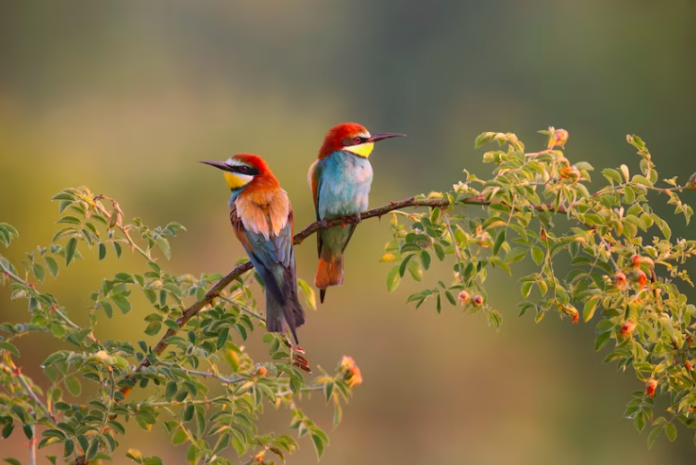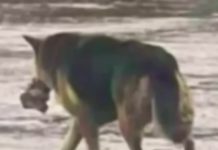Last Updated on November 20, 2023 by Fumipets
How Does Climate Change Affect Birds’ Migration?
We are all aware of the term climate change. In recent times, climate activists like Greta Thumberg have given this topic global popularity. Climate change roughly means that Earth’s temperature is getting hotter, which affects everything on our planet, including birds.
Climate change has affected the ways in which birds migrate. You know, when birds like geese or swallows fly south for the winter and then back north in the spring? That’s what we call migration.
Birds’ Spring Schedule: What’s Changing?
Imagine you’re a bird—a robin, for instance. Every year, you fly from the warmer south to the cooler north to make a nest and raise your babies. You know it’s time to fly north when the days get longer and there’s plenty of food. This is your routine, and you’re good at it.
Early departure dilemma
But there’s a problem: the Earth is getting warmer because of climate change. That means spring arrives earlier in the north. The flowers bloom, insects come out, and everything happens faster. You, as a bird, rely on the right timing to find food for your chicks. If you arrive too late, you’ll struggle to feed them. This is confusing the birds and is playing with their eating habits.
Migration Challenges for the Loons
You must have heard about the loons. They are known all around the world for their mesmerizing calls. They dwell in the northern lakes. These mystic creatures love cool weather, and they are fond of chilly waters.
Now, climate change has affected them as well. With the earth’s temperature rising due to climate change, the lakes are getting warmer with each passing day. This warm water is making these loons uncomfortable and is disturbing their living pattern. For more in-depth info, head over to Learn Bird Watching, where you can learn more about the birds, their habitat, behavior, and lives.

Loons and Their Cool Dilemma
You decide to return to your south home earlier than you had originally planned. It’s a fantastic idea, but there are some disadvantages. Traveling for long distances demands enormous amounts of energy.
Also, the early departure could mean that you miss the finest food and drink options within the south. South. This is as if you leave the party too soon and not soaking up the variety of food options available. Therefore, we can see the impact of climate change on the behavior of the loons.
Struggle for the Right Temperature
They migrate to northern parts of the world, like Canada, which is their favorite cold spot. But long-distance flying needs a tremendous amount of energy. One more problem that the loons face is that the babies are used to the climate of the northern lakes, so they are also not comfortable flying. This leaves the loons in a tight spot. They not only need to go to the cooler waters but also need to have full energy to fly north.
Birds Stuck in a Changing Neighborhood
Other than migratory birds there are also birds that do not leave their environment and live at the same place all year round. The plight of these birds is also becoming difficult, as the surroundings around them are changing at an alarming rate. The surroundings around them are changing.
The plants and trees that were their source of food and nest have either been destroyed due to rapid human expansion or are being destroyed due to the ill effects of climate change. We are constantly seeing more and more occurrences of forest fires across the US, Canada, and all across the globe.
The Challenge of Changing Habitats
Climate change has been devastating for birds in the form of changing habitats. We are seeing that the changes brought by climate change have affected the flora, which in turn has affected the birds.
For example, we are seeing that the birds that were dependent on the acorns, like woodpeckers and jays, are finding it difficult to find food as the oak trees, due to climate change, are not growing properly in some areas. Which is forcing these birds to migrate to different places to find acorns.
Our Role in Helping Birds
Climate change has brought a great deal of trouble for our winged friends. They are suffering for no fault of theirs. They are losing their habitat, food, and resources, all due to human errors and greed. This needs to be corrected. We need to make a change in the lives of the birds by taking conservative and constructive steps towards reversing the effects of climate change.
If we don’t take heed to this glaring issue our future generation would be distracted from getting to watch any birds. So, it is up to us to make a change and stop this from happening. If we are determined in protecting the birds, it can be done easily.
How We Can Make a Difference
Human beings, as a species, are morally bound to protect birds. The life spans of birds are ruined through our actions, therefore we must ensure that they return to their nature-based condition. The way to do this is achieved by taking environmental measures.
This is done by cutting down on pollution, stopping the burning from fossil fuels using renewable energy sources to meet our demands and reducing the carbon footprint of our lives, and putting more trees in the ground. This will not only be beneficial to birds but for us and the future generations too.
Conclusion
We cannot turn a blind eye to the ill effects of climate change on birds. It is our duty as a species to protect and conserve our fellow species. We need to raise more awareness about the ill effects of climate change across the globe.
If we fail to take timely measures for the betterment of birds, it would result in the extinction of some of the most beautiful marvels of our planet. The world leaders need to address this important issue and take steps to ensure that birds find a world in which they can live and thrive. Our future generations would never pardon us for this. The time to take action is now.


















